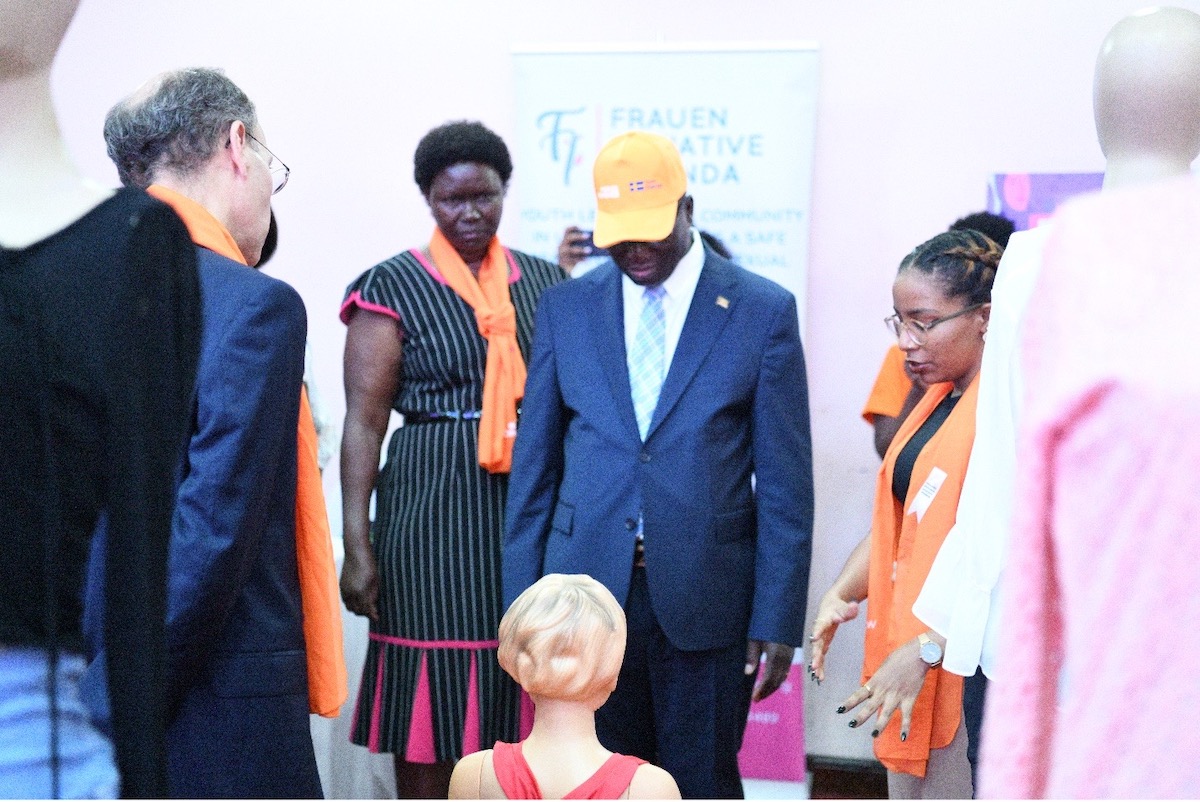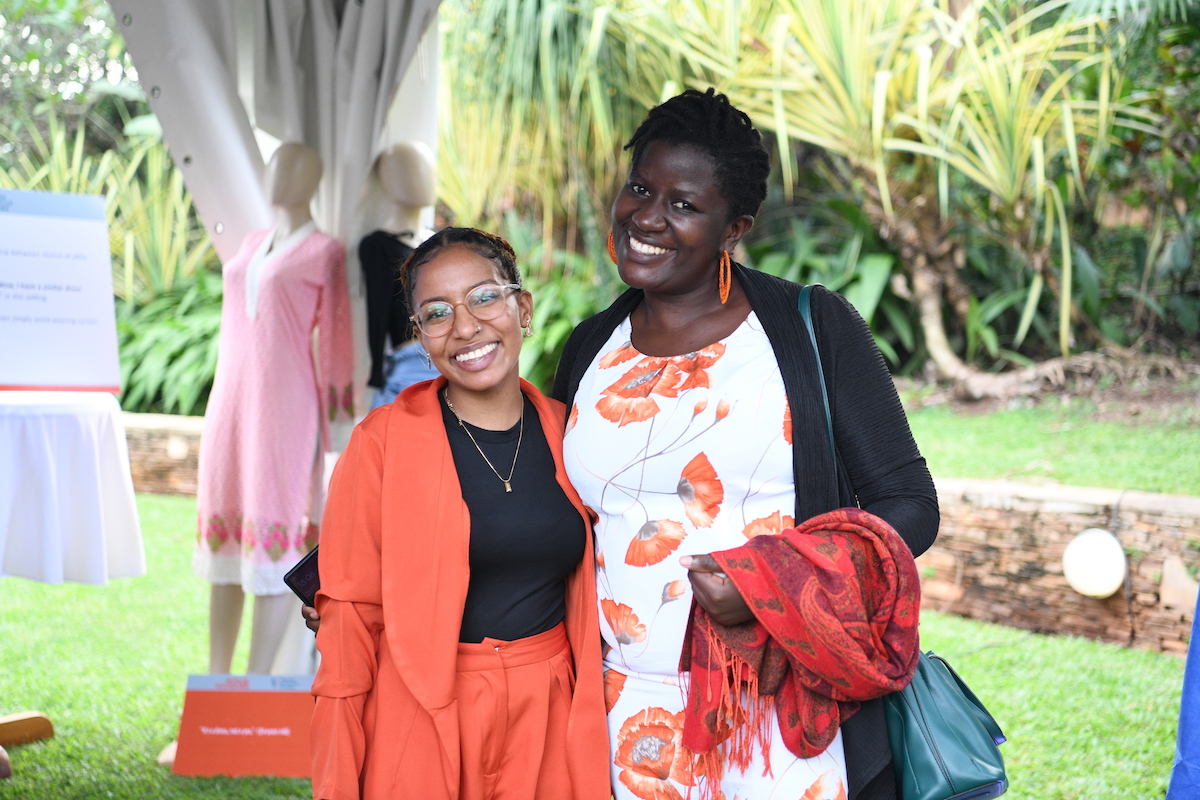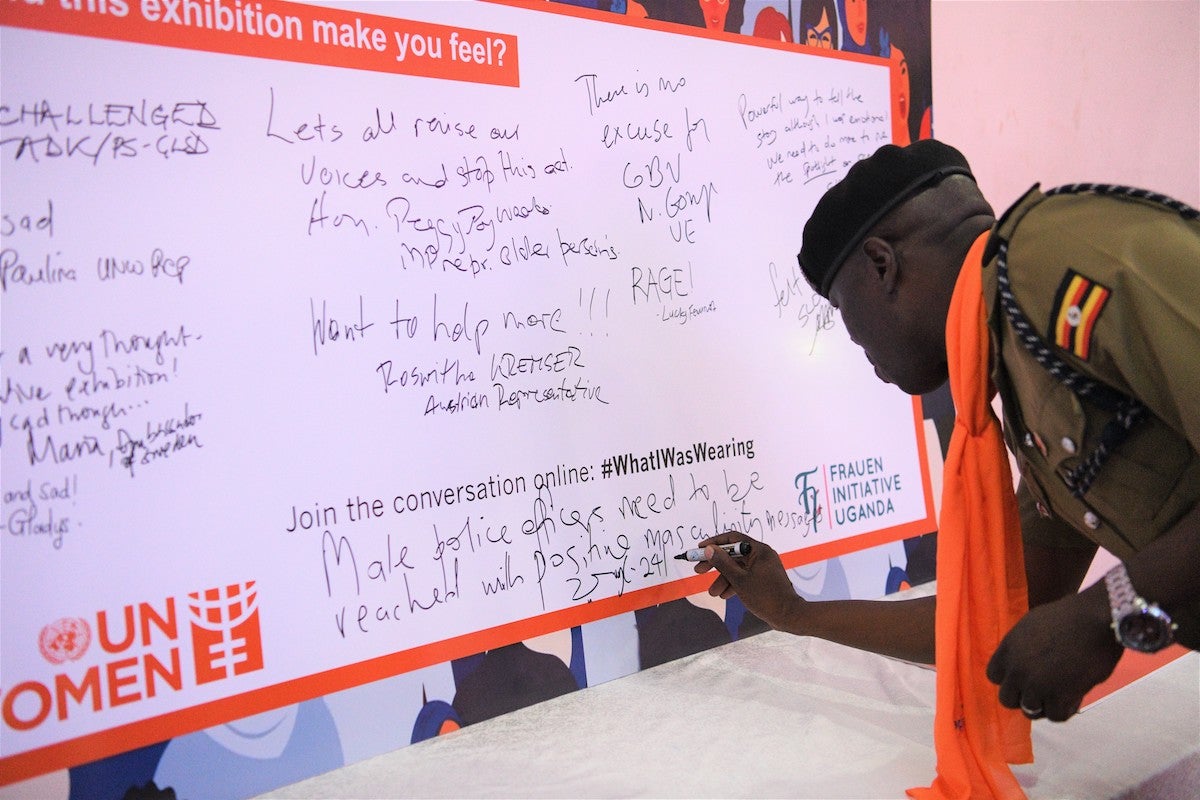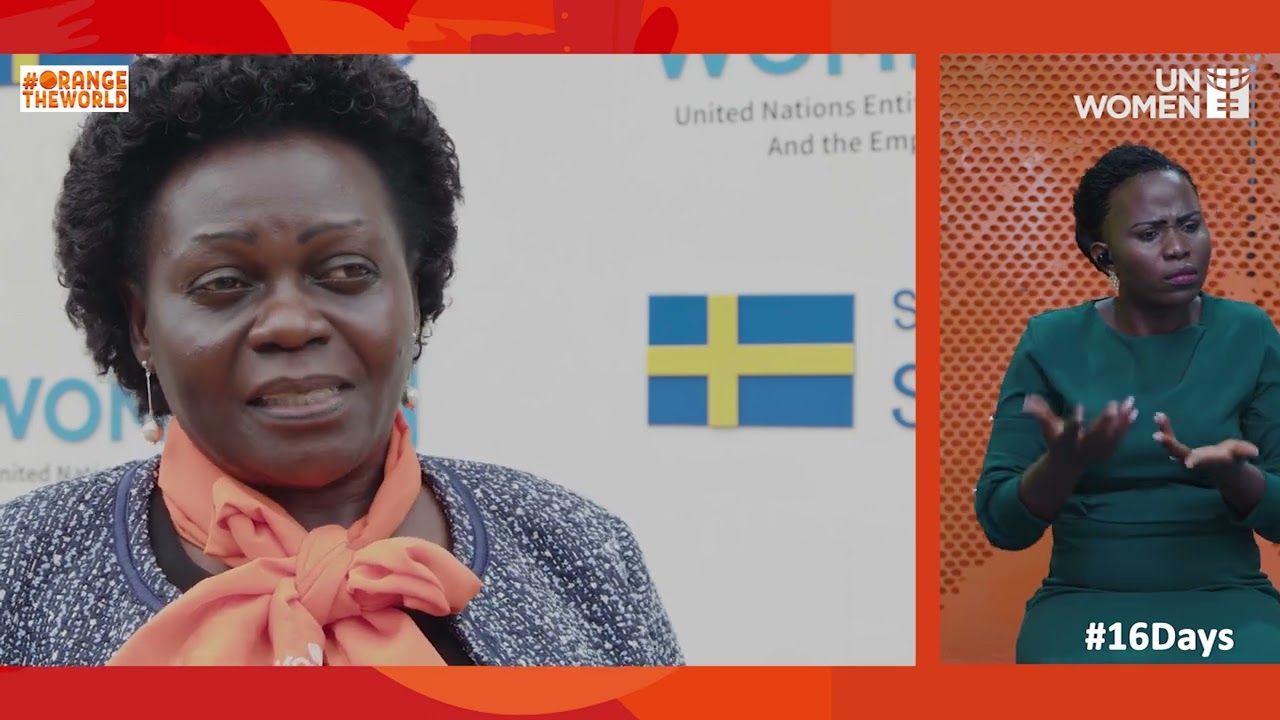“What I Was Wearing” clothing exhibition tells a visual story of GBV statistics in Uganda
Date:
UN Women Uganda and Frauen Initiative Uganda hosted an interactive clothing exhibition “What I Was Wearing” during the 16 Days of Activism against Gender-Based Violence campaign 2022.

This immersive, interactive thought-provoking exhibition displays clothing volunteered by survivors of sexual violence in Uganda. The clothing was displayed on 16 mannequins and the moving exhibition held on the side-lines of multiple 16 Days of Activism against Gender-Based Violence campaign activities including the National Launch. The exhibition launched at the Embassy of the Netherlands Women Leaders Networking Evening, proceeded to the National Launch of 16 days of Activism in Uganda hosted by the Ministry of Gender and finally at the Parliament of Uganda.
Each dressed mannequin was accompanied with a direct quote from the survivors to bring out their stories and experiences. Testimonies ranged from declarative statements “It’s a dress not a yes” to a heart wrenching 16-year old’s’ “I no longer wear dresses unless I have shorts or leggings underneath”. In Uganda, marital rape is yet to be criminalized and one of the mannequins displayed the reality and consequence of this. “He was my husband; I was 2 weeks postpartum.”
A joint initiative from UN Women Uganda and Frauen Initiative Uganda, the exhibition showcases the different attire that survivors of sexual assault were wearing when assaulted, to dispel the idea that what a woman wears is the cause for her assault.
The objective of this exhibition is to highlight that what a person is wearing when they get sexually assaulted has nothing to do with the fact they were assaulted. the exhibition showcases a mannequin wearing a fully covered traditional ‘abaya’. Survivors of sexual assault are frequently asked the question: “What were you wearing?”. This is loaded with victim-blaming and the inference that perhaps the incident might have been avoided if the victim had worn something less revealing. The exhibition theme is “16 outfits, 16 stories for 16 Days of Activism.”
Speaking on the sidelines of the exhibition, Safina Virani, Co-Founder of Frauen Initiative said “The purpose of the exhibition was to trigger conversation around rape culture and how it voids men of accountability by putting the blame on women’s clothes. By having a variety of clothes and ages, it brought out the reality that this can happen to anyone, in any place – even in our homes, and at any stage throughout our life. It triggered the conversation that regardless of what you wear, it cannot prevent sexual violence.”

Some survivors said that when they viewed the exhibition, they recognized themselves in the mannequins and it helped them let go of their guilt, the shame and self-blame. Some people shared that being able to put faces, clothes and reading the words of the survivors themselves impacted them more than the usual conversations around statistics. It really put the issue of sexual violence and rape culture into perspective for them.
Taking the exhibition to the Parliament of Uganda was a bold challenge to Parliamentarians to see the stories of survivors of violence and think of how they can use their positions to better support them. Taking the survivors’ stories to the heart of the policy makers, sharing the story of the wife raped 2 weeks postpartum in the same halls where they have the influence to criminalize marital rape.

“The exhibition has made us realize that people feel the impact more when they can see it. Every year different countries and organizations share statistics and while they are important, telling a visual story of these statistics can put the audience in the shoes of survivors of violence and ignite a flame of wanting to help do more. We need to get more creative with how we tell these stories and share statistics.” - said Evelyn Letiyo, UN Women Uganda EVAW Programme Specialist.
